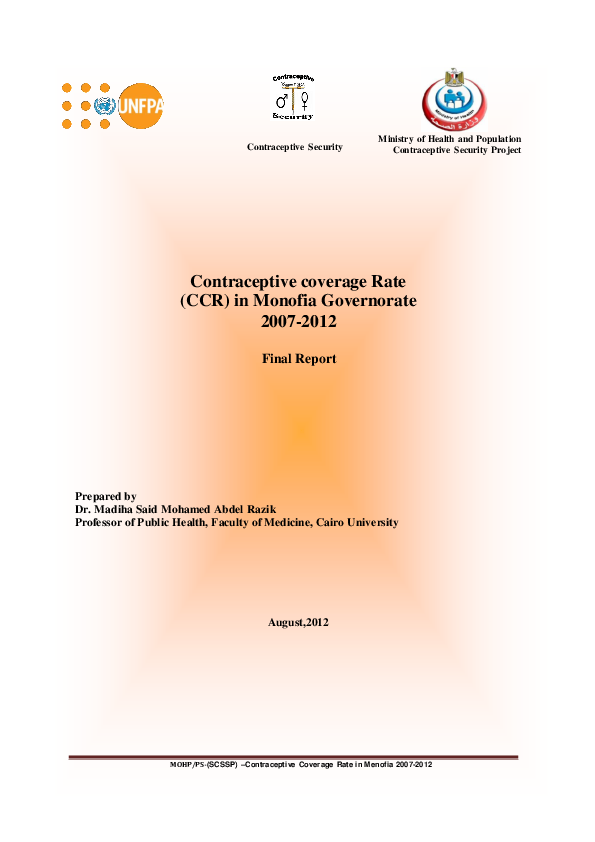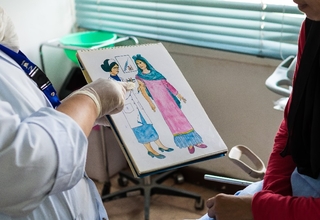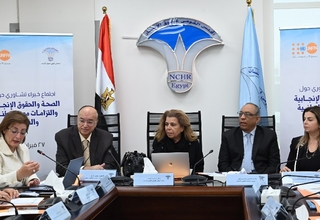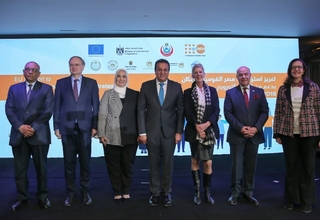Introduction
Throughout the period 2002-2011 the family planning program underwent different challenges resulted in increase in the crude birth rate from 25.5 live births /1000 population in 2005 to 27.9 live births per 1000 population in 2010. According to EDHS 2005 – 2008, the contraceptive prevalence rate (CPR) for all methods was 59. 2% in 2005 and 60.3% in 2008 and for modern methods CPR were 56.5% in 2005 and 57.6% in 2008. Unmet needs for FP is maintained at high level i.e. 10.3% in 2005 and 9.2% in 2008. According to National Population Council, the Contraceptive Coverage Rate (CCR) is used as proxy indicator for monitoring the contraceptive prevalence rate (CPR). CCR is the percent of the distributed FP methods (expressed as couple year protection/CYP) to total number of married women in the reproductive age (MWRA). According to NPC statistics CCR at the national level had shown a decrease from 58% in 2005 to 45% in 2011.
The study conducted in 2008 to investigate the causes of reduction in CYP in Egypt 2002-2007 had identified that the phasing out of foreign funds that supported FP program in Egypt was associated with reducing different MOHP/PS-FP activities. The findings derived from the study of FHM and its impact on reproductive health services had been considered by MOHP/PS policy makers. According to results of that study, RH/FP services become provided in separate clinic from that for family medicine clinic to ensure privacy and promotion of FP services. The studies that emphasized on supporting the FP program through commissioning policy, financial, institutional, and community strategies were aiming at sustainability of effective FP services. Integration of FP services with postpartum care and emphasizes on providing FP services for birth spacing in an appropriate time for the mother and child; had been raised in one of the NPC-RMU studies. Promoting the role of NGOs in FP program and capitalizing on the extensive network of private clinics and pharmacies to provide quality FP services had been considered by the MOHP/FP program planners. However, almost of the MOHP initiatives to involve the NGOs and private sector in FP services were project oriented rather than institutionalized activities. Dealing with financial sustainability issue of FPP was lacking the mechanism of self-reliance and trials to find another donor were one of the alternatives.
Therefore, MOHP/PS in collaboration with UNFPA had introduced the SCSSP. The project is composed of a package of institutionalized activities that ensure sustainability of supply of safe and effective FP methods through efficient Egyptian commodity procurement system, logistic management for rationalization of FP method availability and distribution, involvement of the NGOs and private sector in the FP program and conduction of operations research studies that provide information for timely decision-making. Additionally, operations research studies for evaluation of SCSSP activities are integral part of the project.




